Hyundai i30 vs Peugeot 308 - Differences and prices compared
Compare performance (140 HP vs 195 HP), boot space and price (24000 £ vs 29200 £ ) at a glance. Find out which car is the better choice for you – Hyundai i30 or Peugeot 308?
Costs and Efficiency:
Price and efficiency are often the first things buyers look at. Here it becomes clear which model has the long-term edge – whether at the pump, the plug, or in purchase price.
Hyundai i30 has a distinct advantage in terms of price – it starts at 24000 £ , while the Peugeot 308 costs 29200 £ . That’s a price difference of around 5246 £.
Fuel consumption also shows a difference: Peugeot 308 manages with 2.30 L and is therefore decisively more efficient than the Hyundai i30 with 5.70 L. The difference is about 3.40 L per 100 km.
Engine and Performance:
Power, torque and acceleration are the classic benchmarks for car enthusiasts – and here, some clear differences start to show.
When it comes to engine power, the Peugeot 308 has a noticeable edge – offering 195 HP compared to 140 HP. That’s roughly 55 HP more horsepower.
In acceleration from 0 to 100 km/h, the Peugeot 308 is clearly perceptible quicker – completing the sprint in 7.60 s, while the Hyundai i30 takes 9.60 s. That’s about 2 s faster.
In terms of top speed, the Peugeot 308 performs a bit better – reaching 225 km/h, while the Hyundai i30 tops out at 197 km/h. The difference is around 28 km/h.
There’s also a difference in torque: Peugeot 308 pulls to a small extent stronger with 300 Nm compared to 253 Nm. That’s about 47 Nm difference.
Space and Everyday Use:
Beyond pure performance, interior space and usability matter most in daily life. This is where you see which car is more practical and versatile.
Both vehicles offer seating for 5 people.
In curb weight, Hyundai i30 is to a small extent lighter – 1291 kg compared to 1453 kg. The difference is around 162 kg.
In terms of boot space, the Peugeot 308 offers minimal more room – 412 L compared to 395 L. That’s a difference of about 17 L.
In maximum load capacity, the Peugeot 308 performs hardly perceptible better – up to 1323 L, which is about 22 L more than the Hyundai i30.
When it comes to payload, Hyundai i30 slight takes the win – 509 kg compared to 503 kg. That’s a difference of about 6 kg.
Who wins the race in the data check?
The Peugeot 308 is far ahead overall in the objective data comparison.
This result only shows which model scores more points on paper – not which of the two cars feels right for you.
Costs and Consumption
View detailed analysis
Engine and Performance
View detailed analysis
Dimensions and Body
View detailed analysis
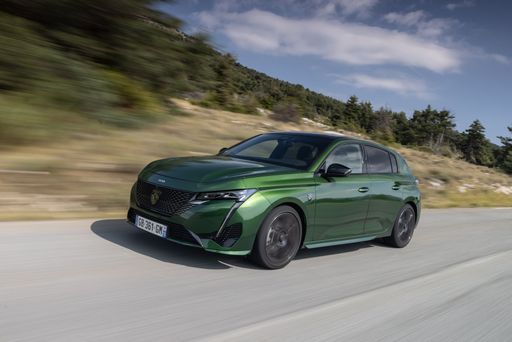
Peugeot 308
Hyundai i30
The Hyundai i30 proves that sensible can also be stylish, offering a confident driving character wrapped in neat, modern design. It serves up a roomy, well-equipped cabin and composed ride that make everyday motoring feel like a clever purchase rather than a compromise.
details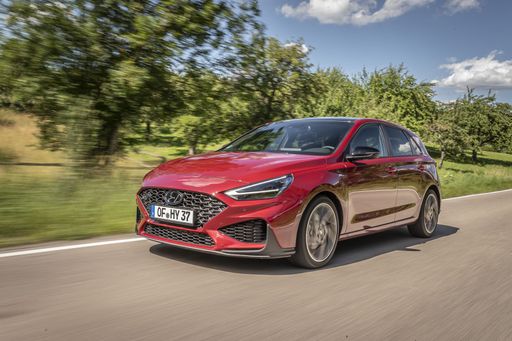
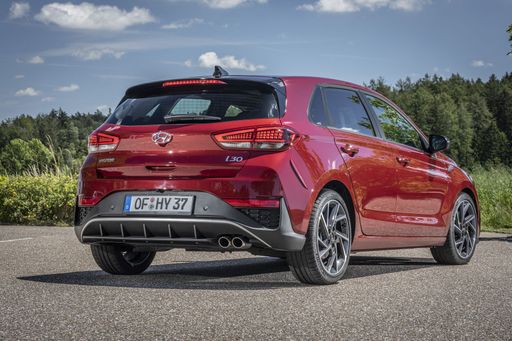
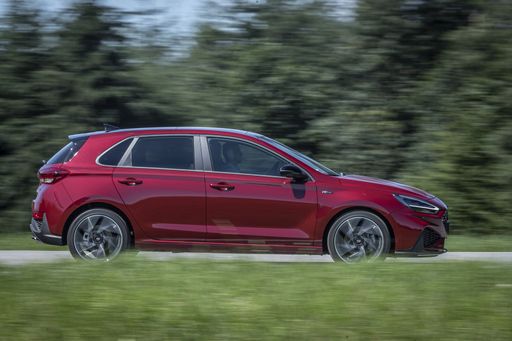
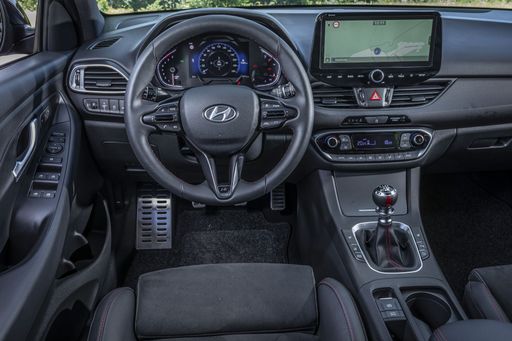
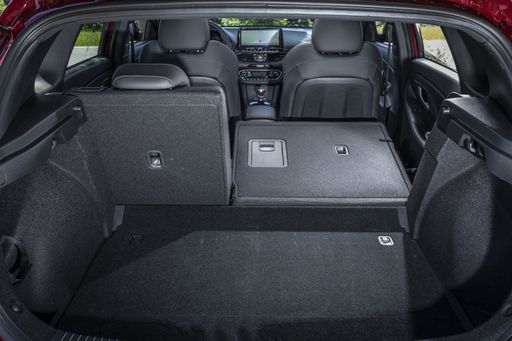
Peugeot 308
The Peugeot 308 brings a sleek, feline profile and an unexpectedly upscale cabin, with clever packaging and materials that feel a touch more premium than you might expect. It’s composed on the road, easy to live with for daily life, and a smart choice if you want a stylish hatch that still behaves when the road gets interesting.
details
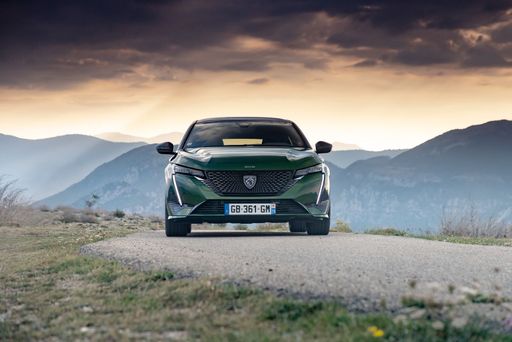
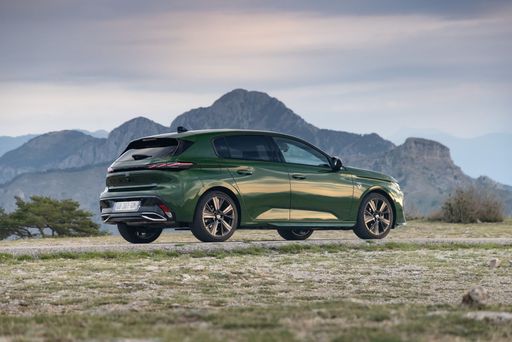
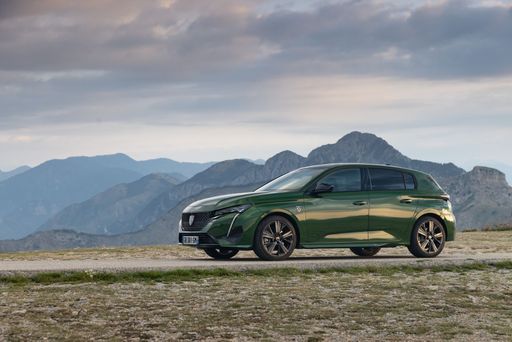
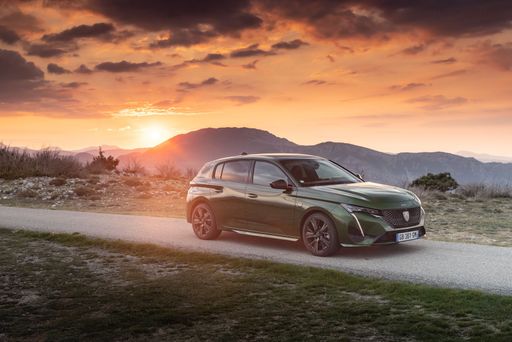
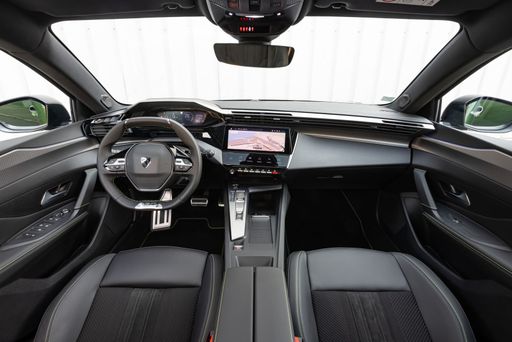
Costs and Consumption |
|
|---|---|
|
Price
24000 - 29300 £
|
Price
29200 - 42600 £
|
|
Consumption L/100km
5.7 - 6 L
|
Consumption L/100km
2.3 - 5 L
|
|
Consumption kWh/100km
-
|
Consumption kWh/100km
15.60 kWh
|
|
Electric Range
-
|
Electric Range
78 - 450 km
|
|
Battery Capacity
-
|
Battery Capacity
0.40 kWh
|
|
co2
130 - 136 g/km
|
co2
0 - 129 g/km
|
|
Fuel tank capacity
50 L
|
Fuel tank capacity
42 - 52 L
|
Dimensions and Body |
|
|---|---|
|
Body Type
Hatchback
|
Body Type
Hatchback
|
|
Seats
5
|
Seats
5
|
|
Doors
5
|
Doors
5
|
|
Curb weight
1291 - 1407 kg
|
Curb weight
1453 - 1749 kg
|
|
Trunk capacity
395 L
|
Trunk capacity
314 - 412 L
|
|
Length
4340 mm
|
Length
4367 mm
|
|
Width
1795 mm
|
Width
1852 mm
|
|
Height
1455 mm
|
Height
1438 mm
|
|
Max trunk capacity
1301 L
|
Max trunk capacity
1258 - 1323 L
|
|
Payload
463 - 509 kg
|
Payload
430 - 503 kg
|
Engine and Performance |
|
|---|---|
|
Engine Type
Petrol, Petrol MHEV
|
Engine Type
Petrol MHEV, Diesel, Plugin Hybrid, Electric
|
|
Transmission
Manuel, Automatic
|
Transmission
Automatic
|
|
Transmission Detail
Manual Gearbox, Dual-Clutch Automatic
|
Transmission Detail
Dual-Clutch Automatic, Automatic Gearbox, Reduction Gearbox
|
|
Drive Type
Front-Wheel Drive
|
Drive Type
Front-Wheel Drive
|
|
Power HP
100 - 140 HP
|
Power HP
131 - 195 HP
|
|
Acceleration 0-100km/h
9.6 - 13.1 s
|
Acceleration 0-100km/h
7.6 - 10.6 s
|
|
Max Speed
178 - 197 km/h
|
Max Speed
170 - 225 km/h
|
|
Torque
172 - 253 Nm
|
Torque
230 - 300 Nm
|
|
Number of Cylinders
3 - 4
|
Number of Cylinders
3 - 4
|
|
Power kW
74 - 103 kW
|
Power kW
96 - 144 kW
|
|
Engine capacity
998 - 1482 cm3
|
Engine capacity
1199 - 1598 cm3
|
General |
|
|---|---|
|
Model Year
2024
|
Model Year
2025
|
|
CO2 Efficiency Class
D, E
|
CO2 Efficiency Class
C, D, B, A
|
|
Brand
Hyundai
|
Brand
Peugeot
|
What drive types are available for the Hyundai i30?
Available configurations include Front-Wheel Drive.




